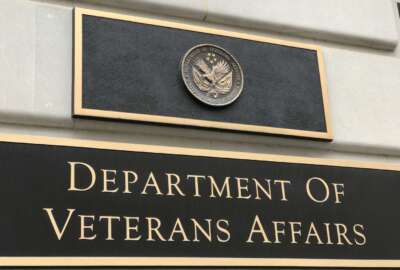OMB details shutdown procedure
The Office of Management and Budget detailed what agencies should do over the next four days to prepare for and in the event of a government shutdown.
wfedstaff | June 3, 2015 11:22 pm
By Jason Miller
Executive Editor
Federal News Radio
The Office of Management and Budget detailed what agencies should do over the next four days to prepare for and in the event of a government shutdown, addressing everything from employees’ expectations, to contractors and grantees, to whether a non-furloughed employee can perform other work on agency technology.
In a 16-page memo from OMB Director Jacob Lew, the administration said it wants all non-exempted, or furloughed, employees to plan to work a four-hour day on Monday to help with an orderly shutdown.
Funding for agencies will run out Saturday, April 9, at midnight of lawmakers do not pass a budget. Congress and the White House have been meeting over the last few weeks trying to work out a deal, but time is running out.
The memo also details what steps agencies should take on Thursday, Friday and over the weekend, including letting employees know who is to be furloughed, or non-exempted, and who is considered exempted.
“Tomorrow is a normal workday for the federal government, and all employees should report to work as normal. Agencies must complete the process of communicating to all employees their status under a shutdown no later than the end of the day tomorrow,” Lew wrote. “We will advise you tomorrow of further developments, including whether a new CR will likely be enacted. If we inform you tomorrow that a new CR is not likely to be enacted, then you should prepare to implement your shutdown plan beginning on Saturday, April 9.”
Lew wrote that if there is a shutdown, furloughed employees can’t perform any work over the weekend or until further notice, including “accessing agency information technology (e.g., Blackberries, cell phones, computers, laptops), except to the extent that the agency’s contingency plan provides for the agency to use such technology to provide non-excepted employees with updates regarding their furlough and return-to-work status.”
But employees are allowed to check agency technology, including e-mail, as it relates to performing shutdown activities, including receiving and acknowledging receipt of an electronic furlough notice and adjusting voicemail and email to reflect current work status.
Non-exempted employees who are scheduled to telework their next work day should perform shutdown activities as part of their telework day.
“[A]gencies at their discretion may allow other employees to conduct shutdown activities from a remote location, even without an existing telework agreement, ifthe nature of the employees’ shutdown activities are de minimis (i.e., can be completed in approximately 15 minutes),” the memo states.
OMB Deputy Director for Management Jeff Zients said at the White House briefing on Thursday that the administration supports pay reimbursement for furloughed workers. During the 1995-96 government shutdowns, Congress included retroactive pay for employees after passing spending bills.
Zients said the memo is part of the government’s planning for the lapse in funding.
“Agencies also will begin to brief various stakeholders, including contractors, federal employee unions, state and local governments, grantees, key stakeholders about the agency shutdown plans,” he said. “We still hope that we do not have to execute the plans, but we are prepared to implement if necessary.”
The stakeholder-related activities include issuing stop-work orders to contractors for non-essential services as well as continue-work orders for those services deemed essential.
OMB states several factors should play into the decision to end contracts, including the potential length of the shutdown, if the work is statutorily required or if ending the contract threatens life or safety of people or the agency.
“Routine ongoing activities, related to the agency’s contract and grant administration, would not usually be authorized to continue when there has been a lapse in the appropriation that funds the contract and grant administration activities,” the memo stated. “In other words, during a funding lapse, the performance by contracting officers, contracting officer technical representatives, contract administration personnel, and grants management specialists -of routine oversight, inspection, accounting, administration, payment processing, and other contracting or grant management activity would generally not continue.”
Zients said contractors working on projects coming from multi-year funding or user fees will continue to perform on their contracts.
OMB also stated that contractors will not get paid during a shutdown.
“In this regard, the fact that the government would incur interest penalties under the Prompt Payment Act or other law, due to the delay in payment caused by a funding lapse, does not provide a legal justification under the Anti-deficiency Act for an agency to continue to make payments during a funding lapse,” the memo stated.
Among the agencies that will be affected is the White House. Zients said the White House staff would face the same rules as other agencies. He said the Executive Office of the President will have fewer staff.
“Commissioned officers are working and politically appointed Senate-confirmed folks are working,” he said. “Many political appointees will not be working.”
Zients said political appointees couldn’t volunteer to work either.
“Embassies and consulates will continue to operate at lower levels of service,” he said. “And I had mentioned earlier, only emergency passports, so regular passports and visas will not be processed.”
Zients said many websites across the government also will go dark.
“Given that websites represent the front-end of numerous back-end processing systems, agencies must determine whether the entire website can be shut down or components of the website will be shut down,” the memo stated. “If it becomes necessary to incur obligations to ensure that a website remains available in support of excepted activities, it should be maintained at the lowest possible level. For example, in the IRS case above, the IRS website would remain active, but the entire Treasury Department website would not, absent a separate justification or a determination that the two sites cannot not feasibly be operated separately.”
The memo details what agencies should do with all technology. OMB stated agencies should keep the minimal staff needed to maintain and keep secure a single system.
“If the integration of that system with other systems makes it infeasible to maintain operation of the single system without maintaining others with which it is integrated, an agency must provide guidance on operations consistent with avoiding any imminent threat to federal property (including avoiding any permanent disruption to agency IT systems and ensuring preservation of agency electronic records),” the memo stated.
One federal technology manager said they are on call should something happen to their system. Another federal technology manager said they are among the exempted employees.
Agencies can decide if employees need to turn in their computer devices, including BlackBerrys and laptops, OMB stated.
Zients said he sympathizes with the rank-in-file federal worker facing the potential shutdown.
“It’s a hard, hard, hard situation for people to operate with this level of uncertainty,” he said. “And so we have asked agencies to begin communicating to employees as to – if there is a shutdown, hoping again that there is not – what their status will be. Will they be furloughed or will they indeed be at work?”
RELATED STORIES
Copyright © 2024 Federal News Network. All rights reserved. This website is not intended for users located within the European Economic Area.





